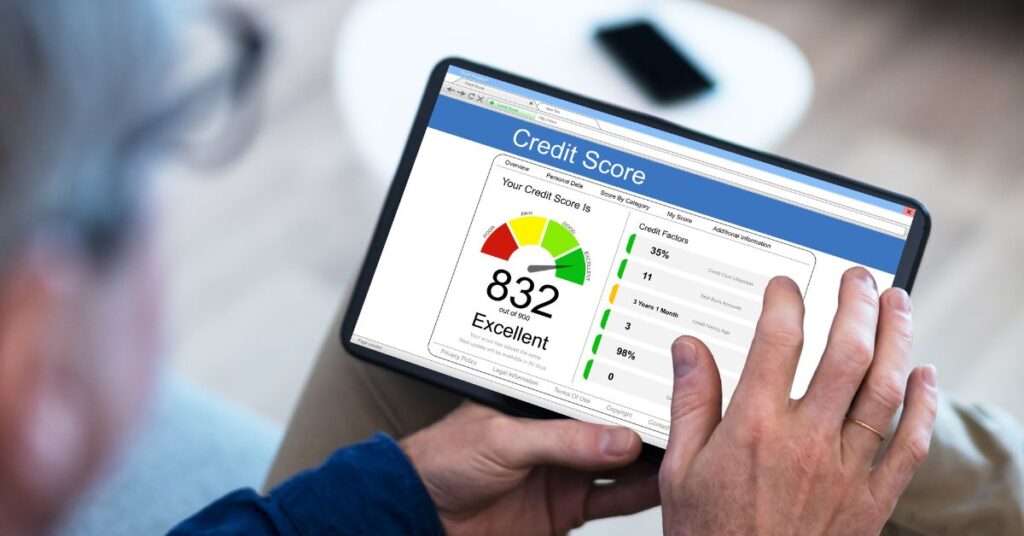What is a Credit Score?
Your credit score is a numerical representation of your financial history. Lenders use this to assess how well you manage credit and determine the likelihood of repaying borrowed money. A higher score increases your chances of approval for loans, including credit cards, car finance, and mortgages.
Your credit score is based on several factors, including current credit usage, repayment history, and financial difficulties such as bankruptcy or County Court Judgements (CCJs). Understanding how credit scores work can help you improve yours, making it easier to access financial products on favourable terms.

What is a Credit Report and What Does it Include?
A credit report is a detailed record of your credit history. Lenders use this to assess your creditworthiness and decide what terms to offer.
A credit report includes personal details such as your name, date of birth, and address history. It lists previous and current credit accounts, showing amounts borrowed, repayment history, and any missed payments.
It also records financial difficulties, including defaults, CCJs, or bankruptcies. This will be recorded if you have used a debt collection agency to settle outstanding amounts. If you apply for a loan with another person, such as a joint mortgage, their credit history may be linked to yours, but this does not necessarily impact your individual score.
How to Check Your Credit Score and the Cost
The UK’s three main credit reference agencies—Experian, Equifax, and TransUnion—allow individuals to check their credit scores online.
Each agency provides a statutory credit report detailing your financial history. This report is free to access, though some agencies offer credit monitoring services for a fee. Checking your score regularly can help you identify errors or areas for improvement.
What is Considered a Good Credit Score?
Credit reference agencies use different scoring systems, meaning there is no universal “good” score. However, a higher score generally improves your chances of securing credit.
Lenders also consider your income and Loan-to-Value (LTV) ratio. The LTV ratio compares your mortgage loan amount to the property value. A lower LTV ratio and stable income improve your chances of approval as lenders assess affordability beyond just your credit score.
Factors That Affect Your Credit Score
Experian, one of the UK’s main credit reference agencies, states that a strong history of responsible borrowing improves your credit score. Consistently paying off loans on time demonstrates reliability to lenders.
Being on the electoral roll can positively impact your score, as it confirms your address. Reaching your credit limit frequently or applying for multiple credit products in a short period can lower your rating, suggesting financial instability or a reliance on borrowing.
A lack of credit history can also negatively affect your score. If you have never borrowed money, lenders cannot assess how well you manage repayments. However, credit scores are based on recent activity, meaning older financial issues, typically over six years old, have less impact.

Ways to Improve Your Credit Score
There are several steps you can take to improve your credit score:
Make Payments on Time
Paying bills and loan repayments by their due date builds a positive credit history. Setting up direct debits can help avoid missed payments.
Keep Credit Card Balances Low
Using too much of your available credit can indicate financial stress. Keeping credit utilisation below 30% of your total limit can improve your score.
Ensure Your Details are Correct
Incorrect or outdated information on your credit report can affect your score. Regularly check and update your details with credit reference agencies.
Limit Credit Applications
Applying for multiple credit products in a short time can make lenders think you are having financial difficulty. Spacing out applications can help maintain a stable credit rating.
Does Checking Your Credit Score Affect It?
The impact of checking your credit score depends on the type of check performed.
A soft credit check happens when you or a company reviews your credit file for pre-approval purposes. These do not affect your score and are only visible to you.
A hard credit check occurs when you apply for credit, such as a mortgage or loan. These leave a record on your credit report and remain visible for up to two years. Applying for multiple credit products in a short period and getting rejected can negatively impact your score.
Lenders must inform you if they are performing a hard check, so check the terms before proceeding with any application.
Useful Resources
For more mortgage-related advice, check our guide on How to Secure a Mortgage with a Low Deposit. Understanding credit scores is just one part of preparing for a mortgage. By improving your score and managing finances well, you can enhance your chances of securing a competitive mortgage deal.

